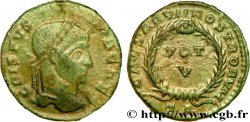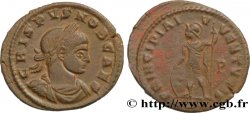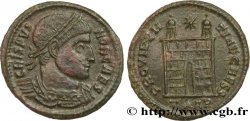E-auction 549-476257 - brm_582900 - CRISPUS Centenionalis ou nummus
You must signin and be an approved bidder to bid, LOGIN TO BID. Accounts are subject to approval and the approval process takes place within 48 hours. Do not wait until the day a sale closes to register. Clicking on « bid » constitutes acceptance of the terms of use of cgb.fr private e-auctions.
Bids must be placed in whole Euro amounts only. The sale will start closing at the time stated on the item description; any bids received at the site after the closing time will not be executed. Transmission times may vary and bids could be rejected if you wait until the last second. For further information ckeck the E-auctions F.A.Q.
NO BUYER'S FEE.
NO BUYER'S FEE.
| Estimate : | 100 € |
| Price : | 24 € |
| Maximum bid : | 25 € |
| End of the sale : | 23 October 2023 14:11:40 |
| bidders : | 7 bidders |
Type : Centenionalis ou nummus
Date: 318-319
Mint name / Town : Lyon
Metal : copper
Diameter : 17,5 mm
Orientation dies : 12 h.
Weight : 2,60 g.
Coments on the condition:
Exemplaire sur un tout petit flan ovale, bien centré, un peu court sur la légende de revers à l’usure régulière. Patine gris foncé
Catalogue references :
Obverse
Obverse legend : D N CRISPO - NOB CAES.
Obverse description : Buste lauré et cuirassé de Crispus à droite, avec pan de paludamentum, vu de trois quarts en avant (B*01).
Obverse translation : “Domino Nostri Crispo Nobilissimo Cæsari”, (À notre seigneur Crispus très noble césar).
Reverse
Reverse legend : VICTORIAE LAET PRINC PERP/ VOT/ PR/ -|-// P(DEUX CAPTIFS DOS À DOS)L.
Reverse description : Deux Victoires debout, face à face, posant un bouclier sur un cippe ; celle qui est tournée à droite avec VOT// PR écrit dessus ; à l'exergue, deux captifs assis, les mains liées dans le dos.
Reverse translation : “Victoriæ Lætæ Principium Perpetuæ/ Vota Populi Romani”, (À la victoire heureuse et durable du Prince/ Vœux du Peuple Romain).
Commentary
Poids très léger. Légende de droit au datif avec l’utilisation de D N (Dominus Noster) comme pour les Augustes (Constantin Ier et Licinius Ier). Exergue inhabituelle.







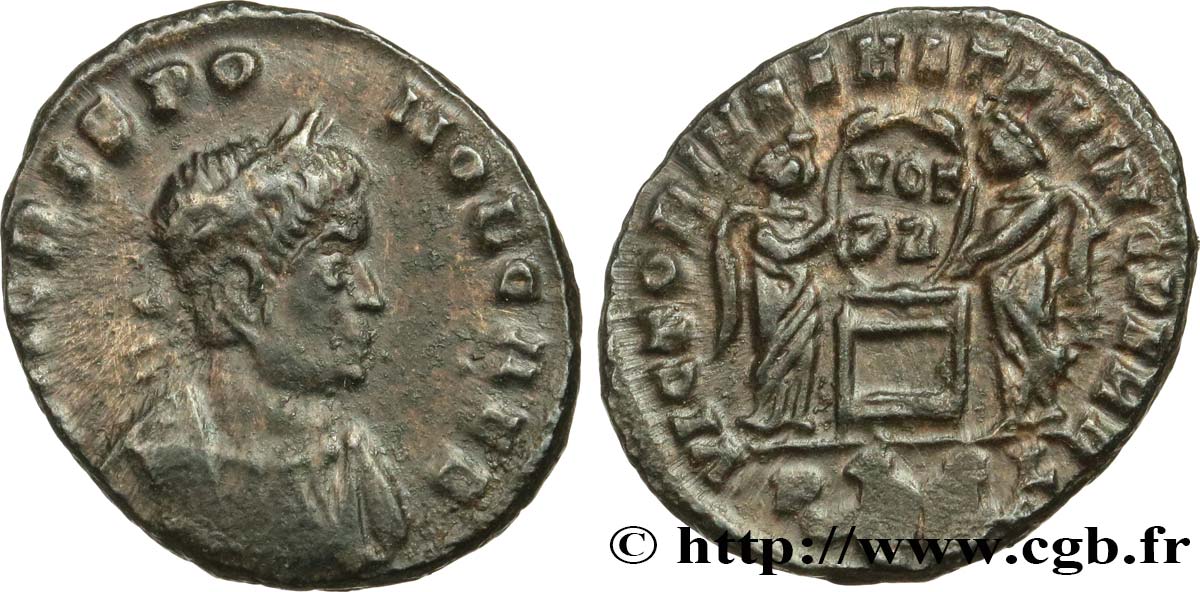
 Report a mistake
Report a mistake Print the page
Print the page Share my selection
Share my selection Ask a question
Ask a question Consign / sell
Consign / sell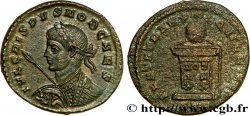
 Full data
Full data